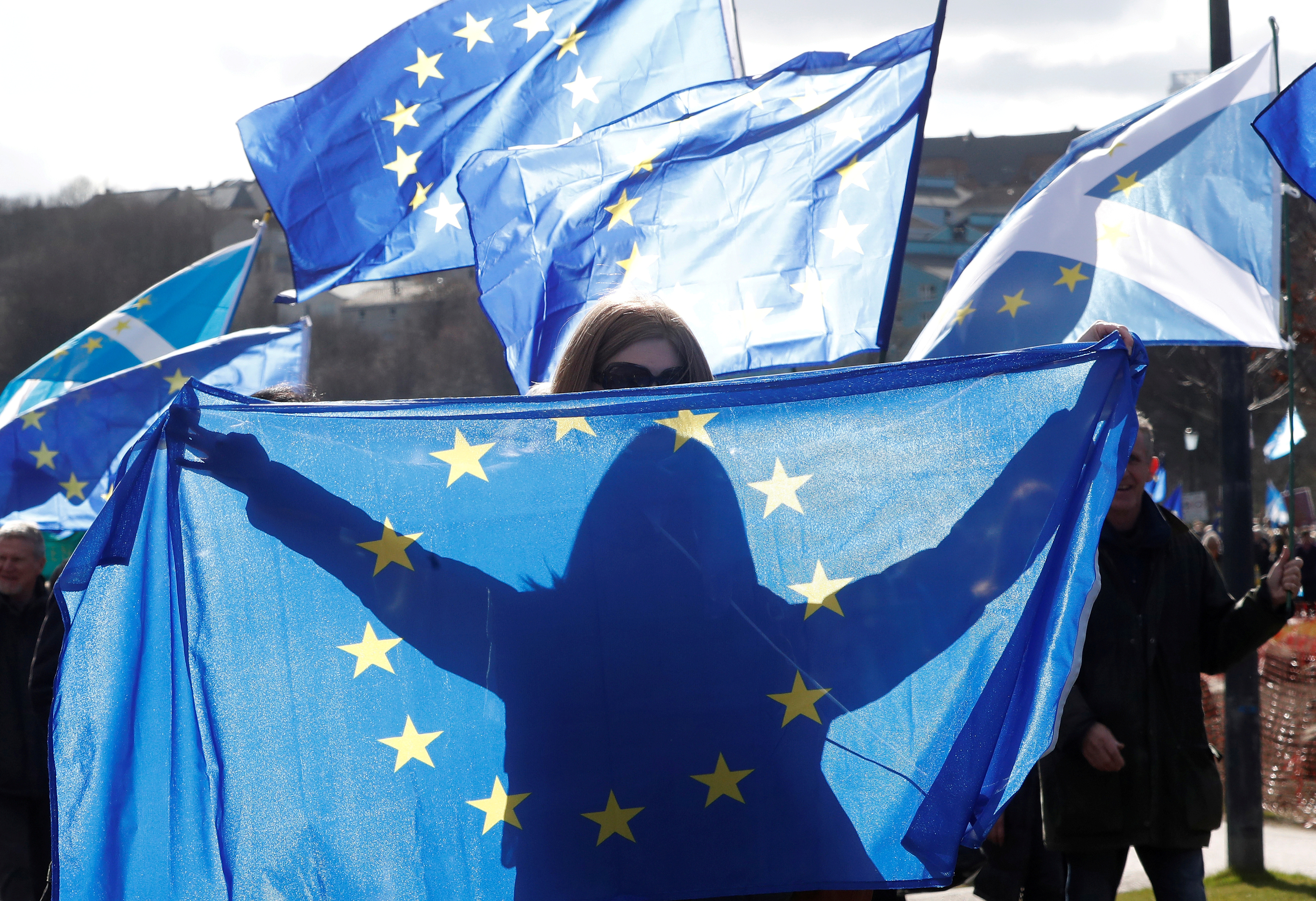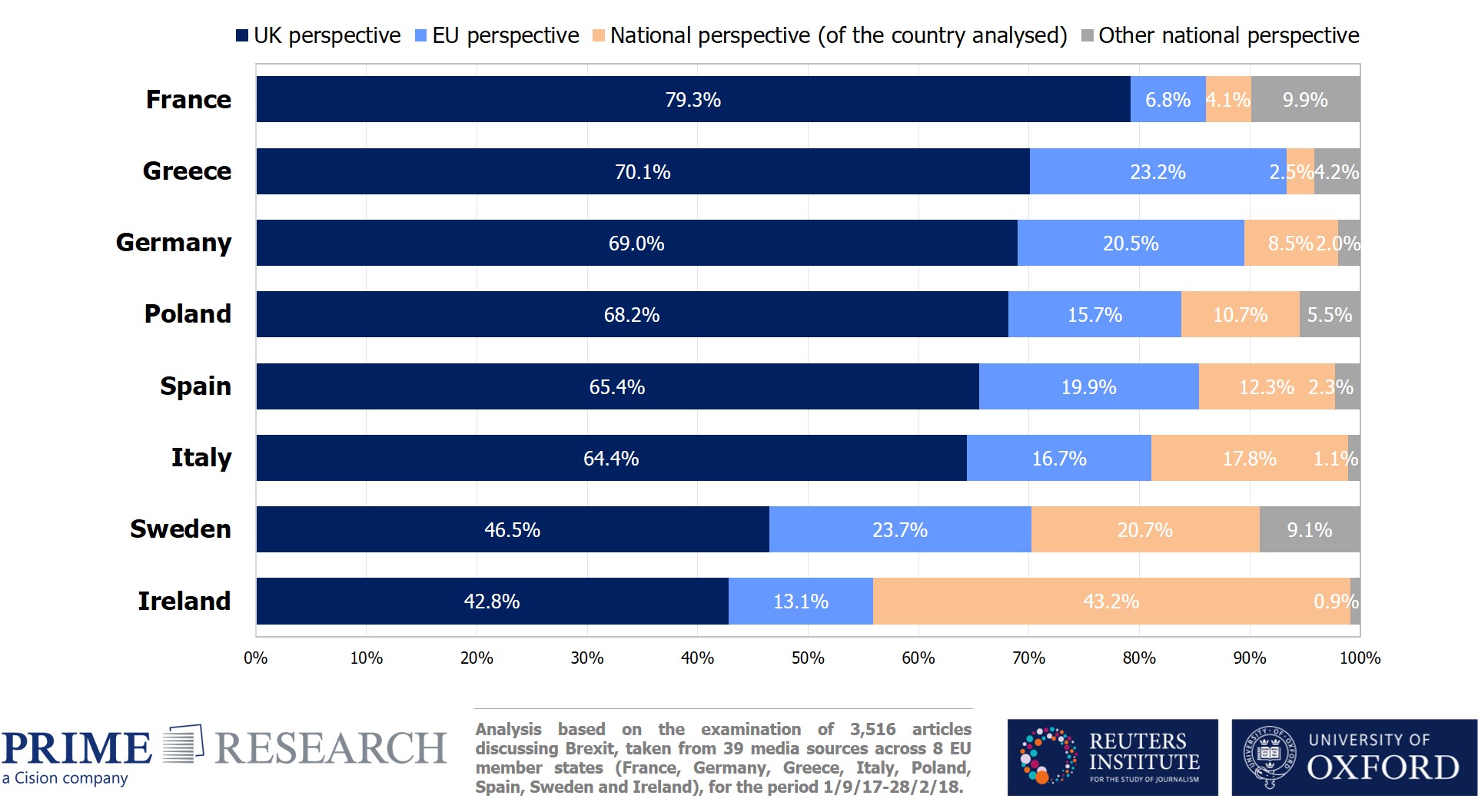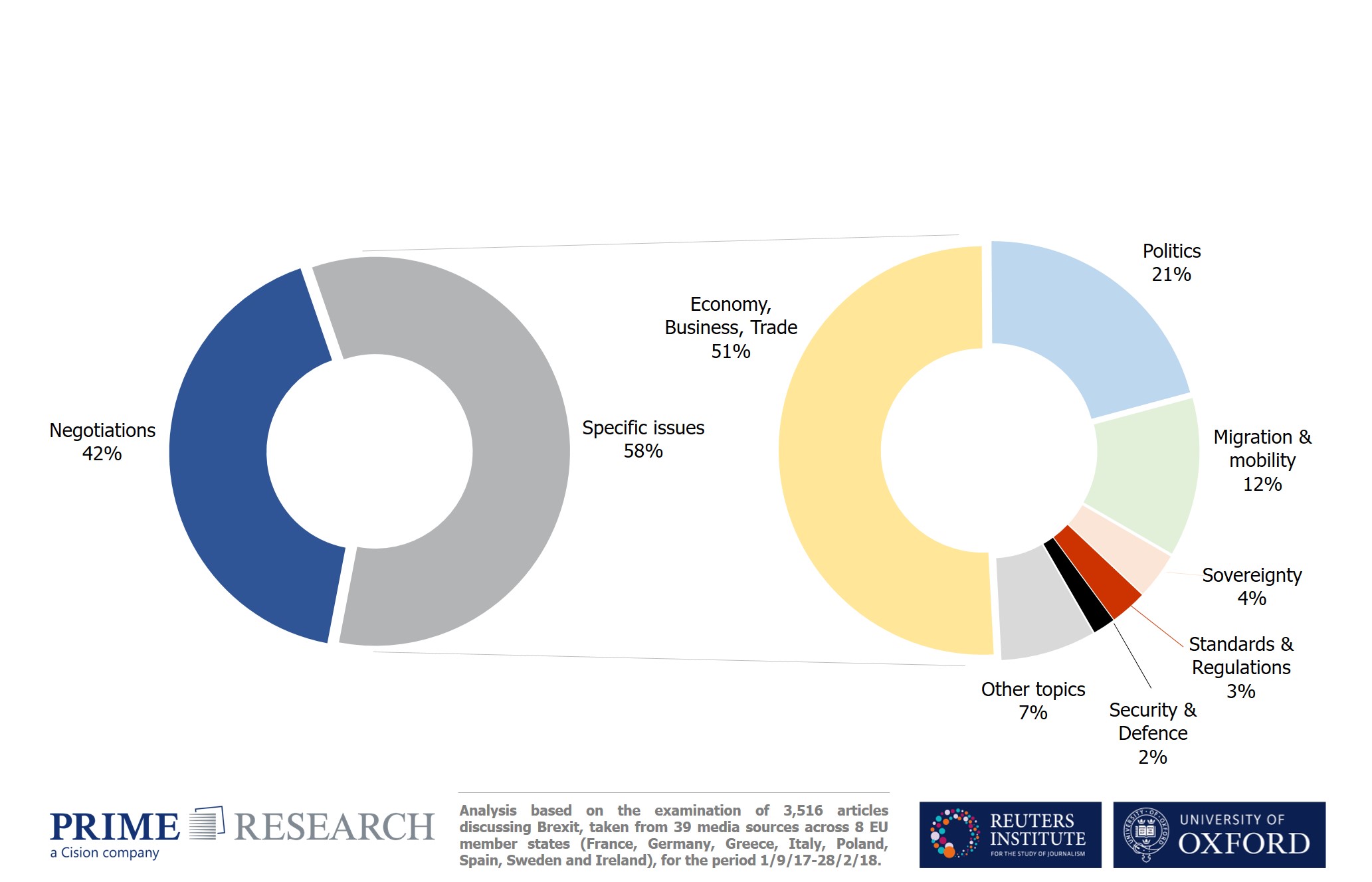Sympathetic but unconcerned: How Europe’s media cover Brexit

European media follow the Brexit debate closely, but appear unconcerned about the United Kingdom leaving the European Union.
A study of media coverage over the past six months reveals those living outside the UK do not believe Brexit will drive the EU apart. It also found European Brexit reporting was predominantly fact-based. Most (78%) analysed news items took no position in relation to Brexit. Only 22% conveyed a clear opinion.
These are preliminary findings of a comparative content analysis of media coverage in eight European countries.
Findings:
1. Media outlets in most countries have adopted a neutral position when reporting Brexit negotiations. Only one in ten reports, on average, covered the issue from a perspective of national self-interest. However there was a notable variation between countries. French media reported Brexit as more of a challenge for the United Kingdom rather than for the French or the EU; interest in the future of the EU was highest in Sweden and Greece. Spanish and Irish media in particular expressed a strong view against Brexit, while Italian and French media were slightly closer to presenting a mixture of arguments.
2. Coverage in Ireland indicated the country’s close involvement in the Brexit process: reporting in Irish media appeared divided equally between the Irish and the British perspectives.
3. The study’s findings reveal a general lack of anxiety about the future of the EU and the impact of Brexit on Europe, or on individual EU countries - with the exception of Ireland. If Irish coverage is excluded, most (68%) of the European news items reflected on the British situation, while slightly less than one in five articles (19%) discussed implications for the EU.

4. Freedom of movement and the rights of EU citizens living in the UK occupied little space in the coverage (7% of news items). This figure decreased to 4% when news articles about the impact of Brexit on Ireland were left out.
5. Excluding any generic references to Brexit, nearly half (42%) of reporting across all studied countries covered progress and setbacks in the Brexit negotiations.
6. The remaining coverage (58%) focused on more specific issues. Of these, half concerned the economy, business and trade.
7. Coverage of EU bureaucracy, standards and regulations played a role in only a small proportion (3%) of content studied.

Which Politicians Drive the Agenda?
Politicians from other EU countries were rarely quoted on Brexit issues. This contrasts with the impression sometimes given in British media coverage that European politicians ‘meddle’ in British affairs. Instead it fits the image of a ‘united front’ promoted by the EU during in the negotiations.
When protagonists were quoted, the tone of the debate was set mainly by UK Conservatives (12.4%) and EU institutions (10.4%). UK Labour politicians played a negligible role: they were quoted in only 3% of news items, while vocal Leave campaigners, such as Nigel Farage and UKIP, were even less present (combined share of 0.3%).
French, German or other EU national politicians were barely quoted (in fewer than 1% of reports). The most quoted person of all protagonists was British Prime Minister, Theresa May, with EU chief negotiator Michel Barnier following some way behind.
The Irish Media and Brexit
A disproportionately large number of articles and news pieces in the sample stemmed from Irish outlets (1290 items - or 37% of the total). This finding can be explained by the particularly complicated relationship between the United Kingdom and the Republic of Ireland following the Brexit Referendum.
Northern Ireland and the Republic of Ireland share a land border and a common travel area between the UK, and the Republic allows for the free movement of goods and people. Both sides hope to avoid a return to a “hard border” although how this could be achieved is still being debated. For this reason the topic has featured prominently in Brexit negotiations and has strongly influenced the Irish news coverage.
Fact-based reporting
Contrary to popular assumptions that news media are biased and opinionated, the study found that European Brexit coverage was predominantly fact-based. Most (78%) analysed news items took no position in relation to Brexit. Only 22% conveyed a clear opinion. Of these, nearly three quarters (74%) argued against Brexit.

Study
The preliminary study, published one year after Article 50 was triggered on March 29, 2017, was conducted by the Reuters Institute for the Study of Journalism at the University of Oxford in cooperation with the media research specialist, PRIME Research. The analysis spans six months, from September 2017 until February 2018, and focuses on France, Germany, Greece, Italy, Poland, Spain, Sweden and Ireland. For each country studied the entire coverage across five mainstream media sources – two daily newspapers, website, magazine, TV news show – was evaluated, amounting to a total sample of 3516 items.
The Reuters Institute will publish the complete study including a country by country analysis in July.
Methodology
Data were provided by PRIME Research, who collected them from 39 media sources, analysed for the period from September 1st, 2017 to February 28th, 2018. Once an automated search gathered all articles with at least one relevant mention of Brexit, a team of researchers covering all languages assessed whether the articles were relevant and then performed the detailed coding in PRIME’s proprietary content analysis system.
Researchers constructed a total sample of 3,516 articles discussing Brexit. The articles included news items, opinion pieces and editorials. The analysis is based on the more granular message level, according to which each relevant passage (a sentence or paragraph) is analysed separately.
The selection of countries and media sources was dictated in part by resources, and by the desire to cover the most prominent, mainstream outlets in a set of countries that was representative of different perspectives on the matter.
Image: Reuters



